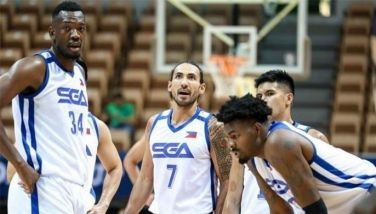The hard choice
Those traditions remind us that while we may be mortal, we cannot live in fear. So, let us charge headlong down all the insane hills, knowing in our hearts that one of them will be our undoing. But not this one. And not today. For right now, we are alive. And we are the champions.
– Rainn Wilson,
“We Are The Champions”
Athletes in basketball, athletics and other sports have expressed apprehensions about going to the Olympics in Tokyo, virus rollouts notwithstanding. With all the delays impacting their training schedules and plans, some athletes also feel that conditions may not be ideal for them to compete. Many athletes build up to Olympics and world championships by training alongside their peers and competitors, or traveling to competitions. Both of those were scuttled by quarantines, lockdowns and travel restrictions in well over a hundred countries.
This is where you see a dividing line between more affluent countries and the rest of the world. In countries where the commercialization of sport is more democratic, they look beyond Tokyo. Catching a virus would derail any plans to win an Olympic gold medal, and cash in on it afterwards. NBA players, for example, have tens or hundreds of millions of dollars in career earnings beyond an Olympic appearance. Sprinters and other athletes who have lucrative endorsement contracts won’t really feel the loss of an appearance in the Games. The potential of getting a life-threatening disease is a heavy consideration.
Athletes have missed Olympics before, and the absence barely dented their careers. Those who were unable to go due to world wars, the 1980 and 1984 boycotts, banning of their countries (like South Africa), mostly went on to achieve fame, success and riches. When you think about it, an Olympic showing is nice to have, but for them, is not career-defining or life-changing.
This is where the poorer, also-ran countries see an opportunity. It works both ways. Just as athletes from more advanced countries and sports programs may not really miss going to the Olympics, history will forget that they weren’t there, as well. If any other athletes do go and win medals, who is to put an asterisk beside their feats? If you don’t compete, don’t complain that whoever won was not worthy. Poorer countries often have large incentives for their athletes, who are generally amateurs and have limited options in earning big money. For military personnel, winning a medal would mean a promotion, honors and higher pay. This one shot at earning lasting economic benefit is worth the risk.
At the moment, athletes on the border of qualifying for the Olympics are happy that those ranked above them are thinking of backing out. They know how this opportunity could propel them, their families, and even their sports associations to the next level for years to come.
- Latest
- Trending





























